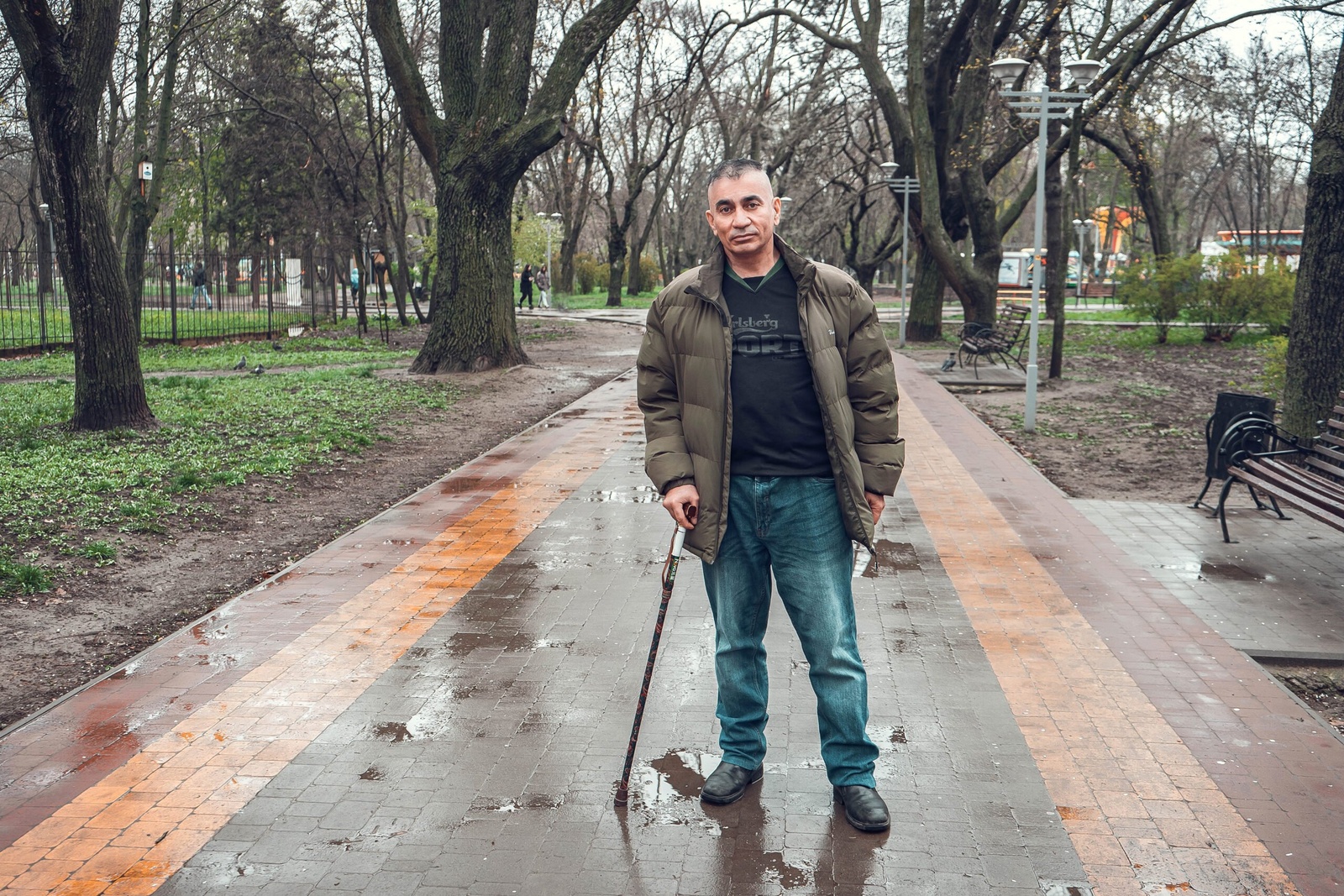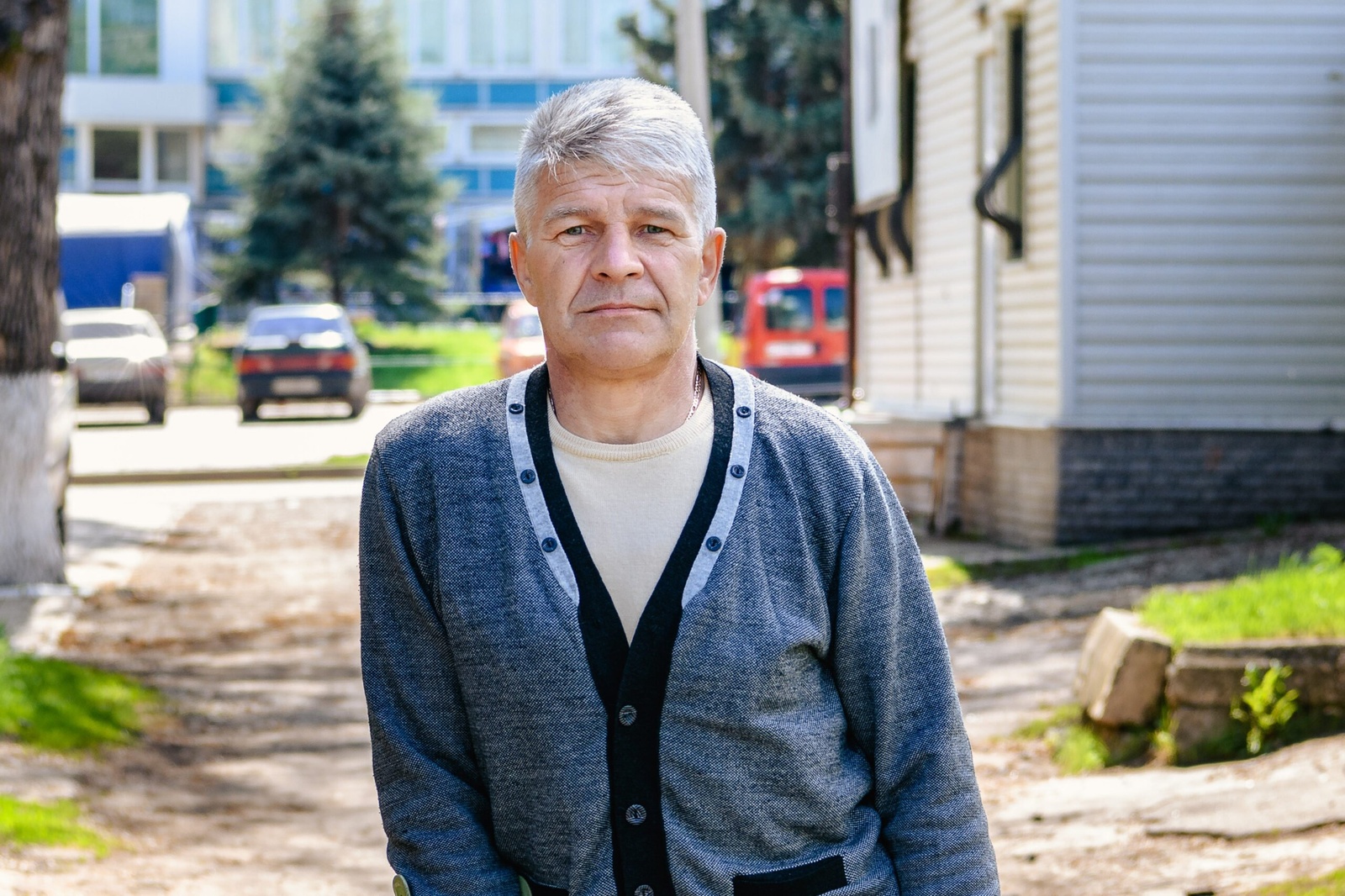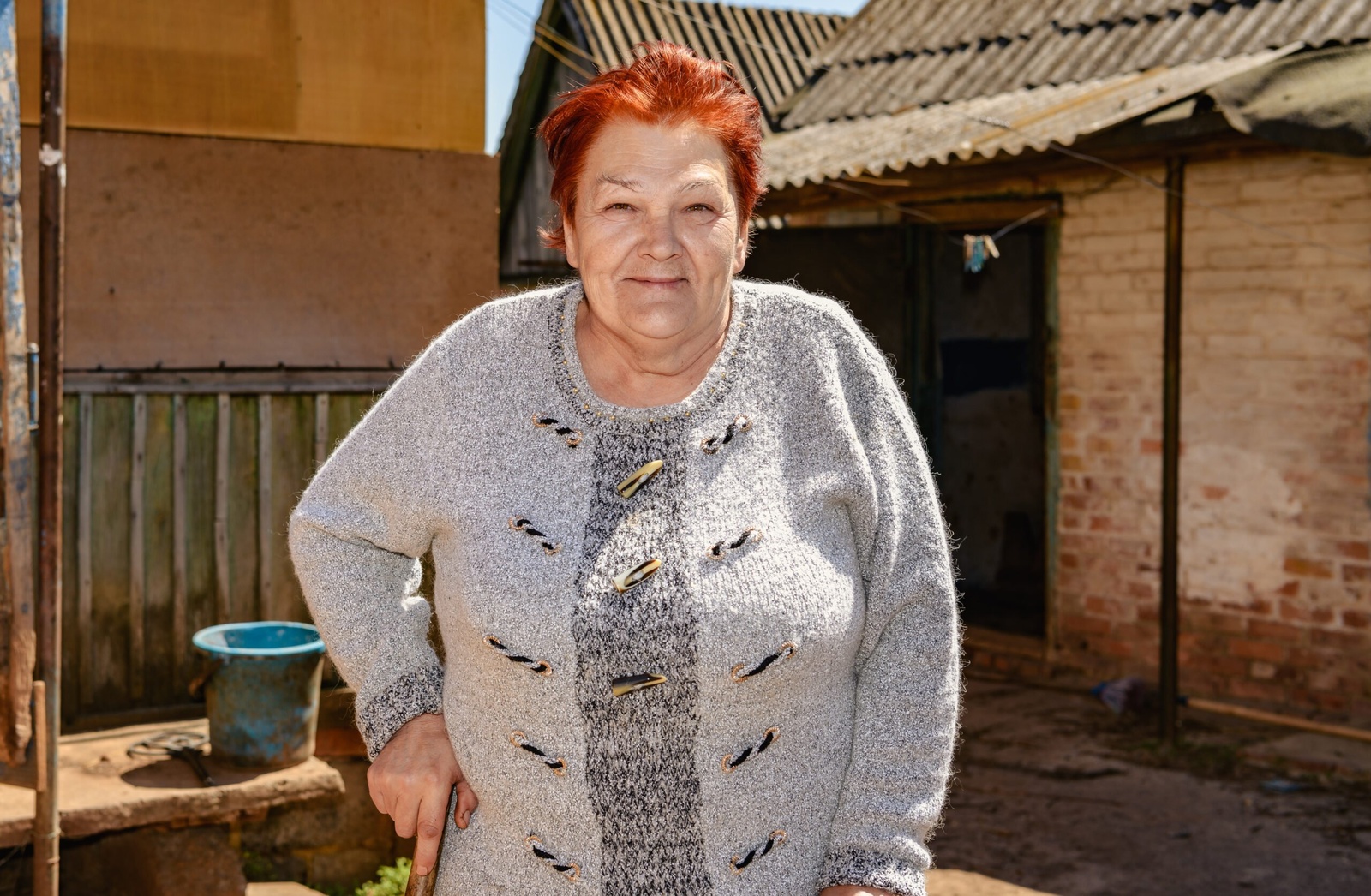Forcibly displaced and conflict affected people in the east of Ukraine defend their rights with support from the European Union
Forcibly displaced and conflict affected people in the east of Ukraine defend their rights with support from the European Union

Shelling, destroyed buildings, mined fields, injured people and lost lives are some of the grave consequences of armed conflicts on people. In 2014, Ukraine faced internal displacement of an unprecedented scale. The country created new laws and regulations to respond to the new realities of IDPs. However, it is not always easy to navigate new legislation without professional legal counseling.
With the support of the European Union, the United Nations High Commissioner for Refugees (UNHCR) and its partner organizations Desyate Kvitnya and The Right to Protection help forcibly displaced and conflict affected people in the east of Ukraine in defending their rights.
These seven portraits tell the stories of those, who received legal assistance. These stories are about people who fought and defended their rights. They are about lawyers, who changed people's lives and gave hope for a better future.
Fevzi, Odesa
Defended the rights of his children to Ukrainian citizenship and social benefits.

Fevzi from Sevastopol, European champion of Greco-Roman wrestling, moved to Kyiv with his family at the beginning of the occupation of Crimea. In the capital, he adapted quickly, as the national team of Ukraine and sports achievements awaited him. However, over time, Fevzi and his wife realized that Kyiv’s climate was not suitable for them and decided to settle in sunny Odesa.
Like many IDPs, Fevzi faced legal issues, including the registration of Ukrainian citizenship for his newborn baby and eligibility to social benefits for his older child. The family therefore turned to the organization Desyate Kvitnya to help them resolve these legal issues and open a new chapter of their lives.
In 2020, inspired by the public initiative and energy of people working at Desyate Kvitnya, Fevzi founded a public organization for Crimean Tatars of the Odesa region. This organisation, supported by UNHCR, has become a cultural centre of the Crimean Tatar community in the region. There, you can learn the Crimean Tatar language and traditions, attend various events and chat over real Crimean Tatar coffee.
Iryna, Odesa
Defended her right to a passport and traveling abroad.
After moving from Luhansk to Odesa, Iryna created a family-type orphanage. The woman is currently raising 7 boys: the youngest is 12 years old and the oldest 18.
At the beginning of the conflict, Iryna left Luhansk with her 2 sons, leaving behind her home and her business. A teacher by profession, Iryna now devotes all her energy and love to raising the boys. She jokes about her decision to start a family-type orphanage: “I am still full of energy, so I have to use it somehow. Why not do something good, start a new family and help these children? "
Iryna needed to travel abroad for her disabled son to receive urgent treatment. However, an unresolved issue with obtaining her passport stood in the way. Thanks to her persistence and timely legal assistance, Iryna and her son were able to travel in time for treatment.
Olena, Kherson.
Defended her right to receive an IDP certificate, social housing, and targeted financial assistance.

Olena never thought she would ever have to leave her hometown of Luhansk so suddenly. The armed conflict changed everything. Olena was forced to flee, living behind her job and home, but she did not lose her spirit. “You can build a new life as long as there is health,” – thought Olena. However, she suddenly contracted a serious illness that caused her to become disabled. She could no longer work.
Olena was not registered as an IDP and did not have the IDP certificate on which the possibility of receiving social assistance depended. Together with human rights activists, she succeeded in obtaining it. She then received the social housing and targeted assistance she was eligible to, thanks to the professionalism and determination of lawyers. Today, Olena is bravely fighting the disease and believes that "after the rain there will be a rainbow, the main thing is to believe in good things."
Aziz, Odesa.
Defended his right to receive an IDP certificate. Still defending his right to social housing.
Escaping war in Syria, Aziz arrived in Ukraine, where he received refugee status. He lived in Luhansk until the armed conflict broke out, this time in Donbas. The man had to pack up and escape once again, becoming not only a refugee but also an IDP. "I could never have imagined so many wars could fall on one person's shoulders until I experienced it myself. But life goes on, and I rejoice every day,” says Aziz.
Without an IDP certificate, which is key to receiving social assistance, Aziz, alone and with a disability, almost found himself on the street. With the support of human rights activists, he received the document and soon after became a Ukrainian citizen.
However, Aziz's struggle continues. Together with lawyers, he is now defending his right to social housing. Aziz hopes that his case will provide an impetus for the provision of social housing to other IDPs in need.
Mykhaylo, Kostiantynivka, Donetsk oblast.
Defended his right to a Ukrainian passport. Still defending his right to have his disability recognized.
Mykhaylo lived without civic documents for a long time, having only a damaged passport of the Soviet Union. He did not manage to restore the document on his own. Three years ago, his need for valid civic documents became vital after he suffered a serious injury and required medical assistance. Without a valid passport, he could not receive treatment and risked losing his leg.
With the help of lawyers from The Right to Protection charitable foundation, Mykhaylo was able to make inquiries to the authorities and to confirm his Ukrainian identity. "After receiving my passport, I started a different life. I have hope for the future now," says Mykhaylo. Today, he continues to fight for his right to have his disability recognised, which will help him receive social benefits and seek funds for leg surgery.
Vira, Bakhmut, Donetsk oblast.
Defended her right to have the State pay utility bills left by the military while they were renting her house.
All her life, Vira had lived in the village of Luhanske, Donetsk oblast, which is currently located on the contact line. When the war broke out, it was too dangerous to stay. She voluntarily rented her house to the Ukrainian military for temporary residence and moved to Bakhmut to live with her daughter.
After the next military rotation, it turned out that the residents left an unpaid electricity bill, which Vira could not pay on her own. Moreover, shelling damaged her house and furniture, but the exit inspection mistakenly concluded her house was fit for life.
"I really want to return home, where there would be comfort and warmth,” says Vira.
With the help of lawyers, Vira got the military to pay the electricity debt. Vira is now planning to ask social services to review the conclusion of the exit inspection. She hopes this will help her receive financial support from the State to repair damages.
Natalia, village Klynove, Donetsk oblast.
Defended her right to a Ukrainian passport.
Natalia lives near the contact line. She has health issues related to her musculoskeletal system. She lives with her daughter in a small house with a garden. Until recently, Natalia solely held an old Soviet passport, which prevented her from receiving pension payments.
“I did not have the opportunity to get to the State Migration Service on my own. I had no idea where to go, how to get a ticket to the electronic queue and how to fill out the application.” She found herself in a difficult situation, without financial support, pension benefits nor social protection. "Since 2020, lawyers from The Right to Protection charitable fund have been supporting me greatly with visits to the State Migration Service. They helped renting a car, gathering witnesses and preparing all necessary documents. I can't imagine going through this difficult process on my own,” says Natalia.
Eventually, Natalia was able to get a Ukrainian passport and, in a few months, will receive her first pension.



















